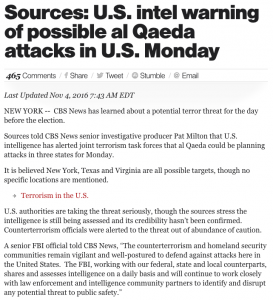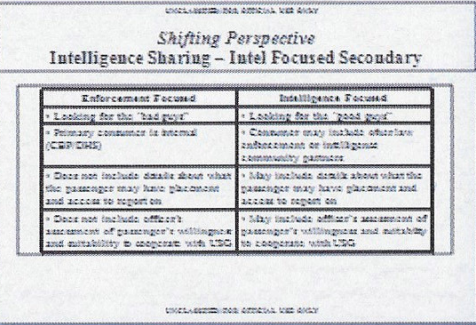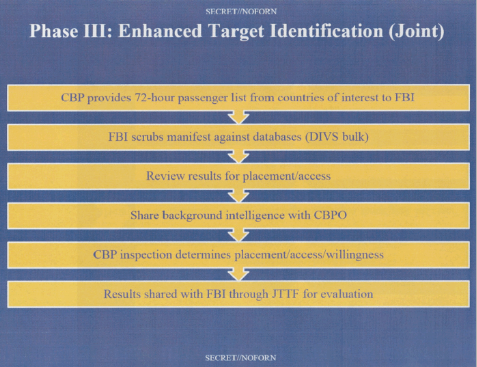In the wake of Trump’s victory, a number of people have offered some thoughts intended to reassure. In a piece titled, “The United States is not about to spiral into tyranny,” Kevin Drum claimed — among other things — that Trump will have a hard time reversing Obama’s Executive Orders.
Trump will learn that repealing executive orders is harder than he thinks, and it’s unlikely he has the attention span to really keep at it.
And a number of pieces — such as this one from Reuters — point to last year’s language in the NDAA limiting interrogation to techniques that appear in the Army Field Manual.
Trump’s support for water-boarding, an interrogation technique that simulates drowning, also would meet opposition. Congress last year passed legislation barring the use of waterboarding and other “extreme interrogation techniques” widely considered torture. Obama signed the measure into law last November.
Both of those reassurances are overly optimistic.
Pixie Dusting EOs
Even on its face, the idea that Trump can’t reverse Obama’s EOs doesn’t make sense. A president has uncontested authority to pass EOs as he pleases. The only limit on that power is Congress. If sufficient numbers in Congress, backed by sufficiently powerful leaders in Congress, want to contest a president’s public EOs, they can try to legislate or defund an activity.
There is no likelihood of that happening with Trump anytime soon. None. Especially not with the EO that Trump is probably most anxious to reverse, Obama’s order deferring deportation of 5 million people who’ve long been valuable members of American society.
More importantly — and this is something everyone needs to start accounting for — according to two different OLC memos, one used to authorize Iran-Contra, the other used to authorize Stellar Wind, the president doesn’t even have to make the actual implementation of his EOs public.
An executive order is only the expression of the President’s exercise of his inherent constitutional powers. Thus, an executive order cannot limit a President, just as one President cannot legally bind future Presidents in areas of the executive’s Article II authority. Further, there is no constitutional requirement that a President issue a new executive order whenever he wishes to depart from the terms of previous executive order. In exercising his constitutional or delegated statutory powers, the President often must issue instructions to his subordinates in the executive branch, which takes the form of an executive order. An executive order does not commit the President himself to a certain course of action. Rather than “violate” an executive order, the President in authorizing a departure from an executive order has instead modified or waived it. Memorandum for the Attorney General, From: Charles J. Cooper, Assistant Attorney General, Re: Legal Authority for Recent Covert Arms Transfers to Iran (Dec. 17, 1986). In doing so, he need not issue a new executive order, rescind the previous order, or even make his waiver or suspension of the order publicly known. Thus, here, the October 4, 2001 Authorization, even if in tension with Executive Order 12,333, only represents a one-time modification or waiver of the executive order, rather than a “violation” that is in some way illegal.
While Jack Goldsmith’s May 6, 2004 Stellar Wind memo supplanted the Yoo memo in which he made this argument, there has been no public repudiation of this logic or the underlying Iran-Contra memo, not by Constitutional scholar Barack Obama, not by Congress.
In other words, no one has invented any kind of requirement that the president let the public or even Congress know what rules he believes he is bound by. Indeed, it’s absurd to think Obama would have institutionalized something like that, given that (according to CIA General Counsel Caroline Krass) his administration has started hiding its self-authorizations in places besides OLC so we won’t know where to look for them.
Which means a man who used disinformation to get elected has no obligation to tell us what rules he considers himself bound by.
Three shell games that already exist under which to conduct torture
Similarly, the NDAA prohibition on torture is less ironclad than often claimed. That amendment didn’t prohibit torture. Rather, it restricted national security interrogators to the techniques in the Army Field Manual.
The amendment explicitly excluded law enforcement personnel from this restriction. As John Brennan said when he was asked about this way back in 2013, the FBI has its own processes and procedures, many of which remain obscure, others of which include clear loopholes. Importantly, the FBI increasingly operates — as the DEA has long done — overseas, where any problematic processes and procedures can easily be hidden.
In addition, as Jeff Kaye pointed out at the time, the AFM includes a section called Appendix M, which permits the use of a technique called Separation. The UN Committee Against Torture found Appendix M problematic, because it induced psychosis, during the UN review of US practices back in 2014.
But there’s another problem with the AFM. In 2006, Steven Bradbury wrote an OLC memo that basically authorized Appendix M largely divorced from the actual details of it. As I read it, that memo may be used for authorization of techniques used in Appendix M even if they’re not enumerated in the memo, meaning Trump can put anything in Appendix M and claim to have OLC buy-off. In fact, Bradbury incorporated within that memo yearly updates to the Appendix. It basically created a drawer, which might or might not be classified, into which DOD could throw whatever it wants to do.
When Congress passed the NDAA, they required the Appendix M to be reviewed to make sure it is humane and legal — but not until 2017. So while the intent of this amendment was explicitly to prohibit inhumane treatment, it relies on a structure of interpretations left up to the future President. The future President, as it turns out, got elected insisting that waterboarding is not torture.
Finally, the Drone Rule Book (which Trump can throw out on January 20 in any case) explicitly envisions letting our friends detain people, so long as they give us reassurances the person will be treated humanely. The Bush Administration started waterboarding people by watching while Egyptians did the waterboarding for us. It asked Bashar al-Assad (and a number of other countries we still are friends with) do far worse to people on our behalf. There has never been any appetite to eliminate the shell game of proxy detention. Indeed, Obama has used such shell games in Somalia and Kuwait, with tortured alleged in the latter case.
The CIA has been leaking wildly about its concerns about being asked to torture. But the CIA — and its enablers — didn’t do the things to make it impossible to ask them to torture when we had the chance.





